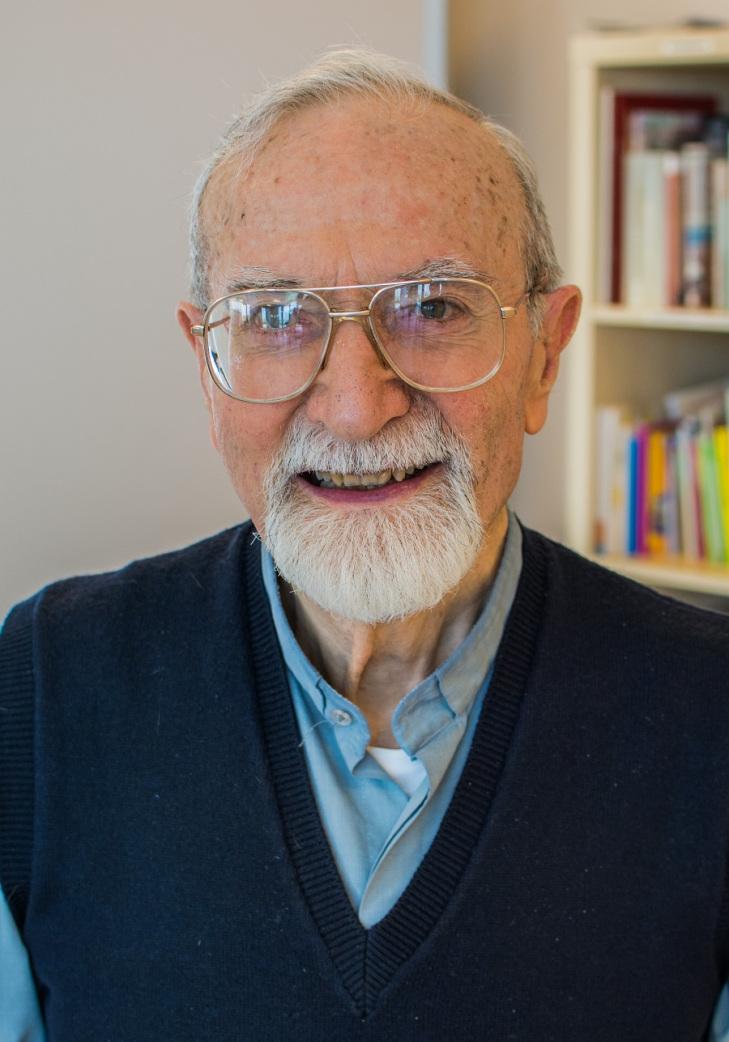Daniel Comboni
Comboni Missionaries
Institutional area
Other links
Newsletter
In Pace Christi
Bressani Giovanni Battista
Fr. Giovanni Battista Bressani ended his earthly existence on Monday, 21 September 2020. He died from Alzheimer’s, a devious disease that silently enters the life of a person only to take it over completely. We do not know what goes through the mind of those who find that life, the environment and relationships are no longer what they have always been used to, when their relationship with the world, places and people become a cause of disturbance and life becomes so complicated that they can do nothing for themselves. But we do know what happens to those who, with an open and docile heart listen to the same words Jesus addressed to Matthew: follow me! The joy of having discovered the treasure of life moves them to leave everything and follow the Lord. The joy of the Gospel truly fills the hearts and entire lives of those who meet Jesus and are not afraid to offer him their very existence to collaborate with him in the work of evangelisation. This indeed was the experience of Fr. Giovanni Battista.
He was just 23 years of age when he became a priest in 1954, four months after taking first vows. He began his ministry as bursar in Carraia and then in Florence. In 1960, he began to work as curate for five years in Mexico. He did specialisation studies in Rome and, in 1966 was sent to Spain as novice master where he stayed until 1975.
Concerning this period, Fr. Manuel João Pereira Correia states: “I met Fr. Bressani more than fifty years ago during our novitiate in Moncada (Spain) from 1968 to 1970. He was our novice master. We were young Portuguese and Spanish youths and he was a young man in his thirties. He was naturally jovial, enthusiastic and playful sort of person but his role forced him to be somewhat strict; he was a man who reflected the values he sought to pass on to us. He often spoke of his missionary experience in Lower California (Mexico)”.
From 1975 to 1981, he was a parish priest in Mexico and was then sent to the Mother House in Verona as superior. He would stay there for six years. In 1987, the bishop of Esmeraldas invited him to go to Ecuador as Vicar general of the diocese: a period lasting eight years. He spent a short period in Columbia, first in Bogota, in Missionary Animation and then in Medellin, in the Postulancy. In 1999, he was appointed to Arco for nine years, serving in ministry, accompanying elderly confreres and as probus vir. In February 2009, he returned to Ecuador and San Lorenzo, an arduous mission in difficult times marked by violence. He was superior at the Provincial House up to 2015 when, now already ill, he returned for good to Italy, staying first at Rebbio and then, from 1 February 2017, at Castel d’Azzano.
Humility, sweetness and magnanimity were the virtues he acquired in the final period of his missionary life when the trials, humiliations and difficulties of the mission and the violence of the environment put him to the test and transformed him interiorly.
“Some God called to be apostles … others to be pastors and teachers to prepare confreres to carry out their ministry”. Fr. Giovanni Battista received the gift of being a master of novices to prepare the confreres for ministry. For many years he was a leader in the communities with the role of a pastor, gathering together, leading and accompanying.
We return to Fr. Manuel João’s testimony: “I again net Fr. Giovanni Battista at the end of the nineties, when he was in charge of the community of Arco for elderly confreres. I visited that community a number of times and was impressed by its serene atmosphere. It was a beautiful community. Fr. Bressani was a capable animator, dedicated and enthusiastic”. “Later on”, Fr. Manuel João continues, “I found Fr. Bressani here in Castel d’Azzano, when the Alzheimer’s disease was worsening. Despite this, he maintained his playful disposition, telling innocent jokes. In the evening, after supper, he would ask where the recreation room was. If we suggested he go to the TV room, he would refuse but if we offered to take him where the other confreres were, he would allow himself to be taken there. He was a man who enjoyed company”.
(Fr. Renzo Piazza, mccj).

